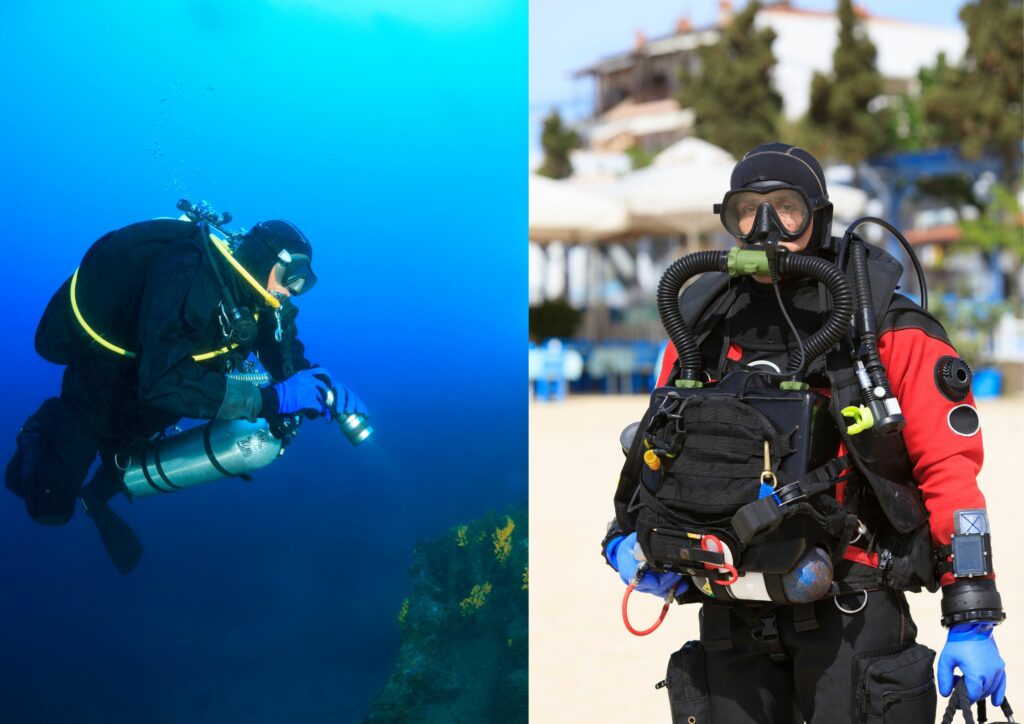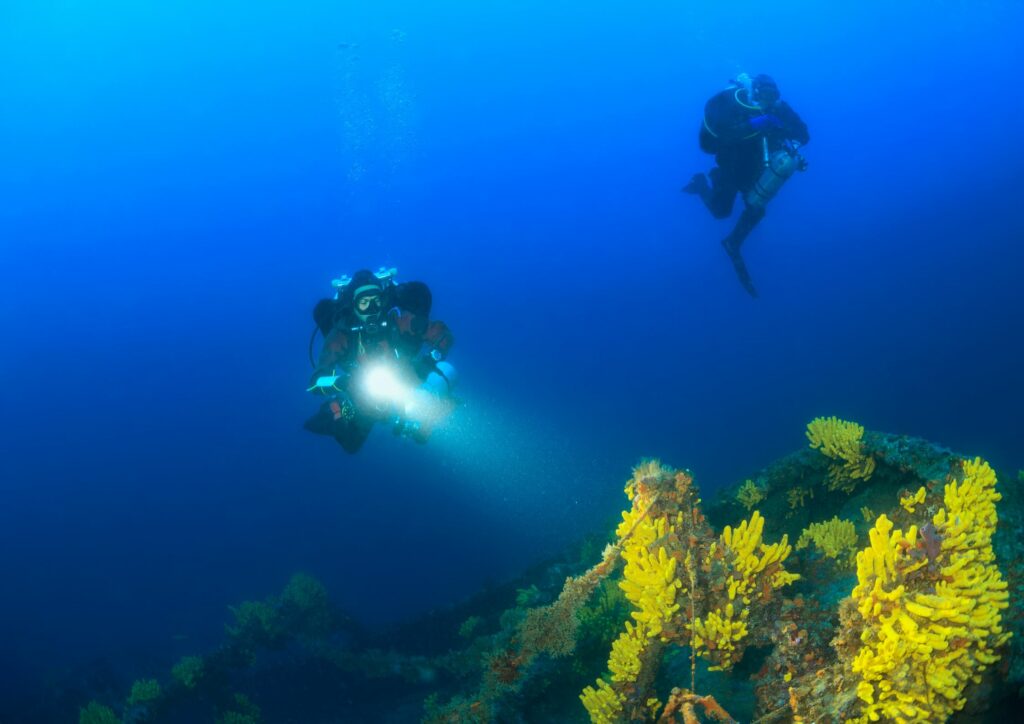Dive into the high-stakes world of technical diving where the success of a deep dive is often a reflection of meticulous Dive Planning, the seamless mastery of Technical Diving Skills, and the sophisticated deployment of Dive Equipment Configuration. All these elements, augmented by comprehensive Deep Diving Training, make technical diving, not just a thrilling nautical adventure, but a well-orchestrated play of safety procedures and risk management strategies – things we will explore in an engaging, in-depth manner in this blog.
The Intricacies of Deep Diving Training
Technical diving is not a mere hobby, it is an extreme adventure that requires courage and strength. It is a discipline explicitly not designed for the faint-hearted. Besides daring, in embarking on this daunting adventure, aligning yourself with a proper Technical Diving Course becomes your crucial first step. This course gradually introduces you to a whole new world of advanced diving techniques.
Moreover, these comprehensive training sessions aim at preparing your body and mind for increased underwater pressure you are to encounter, and various potential emergency scenarios you may face. As a result, Deep Diving Training essentially turns into your preparatory platform, simultaneously providing you a sneak-peek to the real-world diving experience. At the same time, it ensures that future divers are well-prepared, and posses the required skills and knowledge before jumping into the vast below.
Decoding Dive Equipment Configuration for Technical Diving Skills
Integral part to the success, and more importantly, ensuring the safety of a technical dive is the accurate configuration of dive equipment. The choice making process in gear selection and the technique of flawless arrangement are cardinal, as these can spell the difference between a seamless dive and a potential disaster underwater. Hence, gaining a deep understanding about the settings, adjustments, and the upkeep procedures of your dive equipment is crucial. This process isn’t just about having the necessary gear, it goes beyond. It’s about attaining an impeccable mastery over your gear so that you can entirely depend on it irrespective of the unpredictable underwater conditions. It’s about ensuring your equipment aids you and doesn’t obstruct your movement.
The Divers’ Bible: Dive Planning for Technical Diving Skills
Think of Dive Planning as your guiding compass or the road map of every technical dive you undertake. This plan captures key details like determining the depth of the plunge, the essential verification of the required gas mixtures, meticulously planning the decompression stops, and outlining the emergency safety procedures. It goes beyond just an itinerary, it carefully crafts a complete blueprint that divers must religiously adhere to, for ensuring safety. A good, robust plan always accounts for the unpredictability of varying underwater conditions and contains in it, multiple contingency measures to safeguard against potential risks that may arise. As we commonly preach in scuba circles, ‘Walk through the planned diving expedition and faithfully follow the plan during the dive’.
Mastering the Art of Technical Diving Skills

While physical stamina and bravery are prerequisites for deep sea exploration, technical diving demands its unique set of expertise. From understanding the nitty-gritty of equipment technology, the art of managing the perfect gas mixtures, to the regular practicing of emergency routines, these skills turn into the diver’s golden key for operating efficiently in the challenging underwater environment in Technical Diving Skills. Navigating through unprecedented emergencies, mitigating risks that may arise, and ensuring one’s survival depends largely on the professional execution of these technical diving skills.
Conclusion: Navigating the Depths of Safety in Technical Diving
Technical diving, with its awe-inspiring vistas and adrenaline-rushing depths, can often be a formidable challenge. However, with comprehensive Deep Diving Training, meticulous Dive Planning, effective equipment configuration, and honed technical skills, divers can navigate this complex landscape with an ensured safety net. Yet, let’s not forget that the thrill of technical diving is not just in the descent, but in the continuous journey of learning and conquering the depths of the underwater abyss of Technical Diving Skills.

I love how detailed this post is! The importance of proper planning and equipment configuration can’t be overstated. It’s great that you’re highlighting the importance of safety in technical diving.
Hi Kian Wong, thank you for sharing your thoughts on our blog post! We’re thrilled to hear that you found the information detailed and informative. At Gill Divers, we believe that safety should always be the top priority in technical diving, which is why we emphasize the importance of proper planning, equipment configuration, and training. If you have any more questions or would like to know more about our technical diving courses, please don’t hesitate to reach out to us at Tel: +65 6734 9373 or Email: [email protected]. We’re always here to help.
This article really opened my eyes to the world of technical diving! I had no idea it was so much more than just going deep. The emphasis on training and skill-building is crucial, and I appreciate the focus on safety.
Thank you, Nur Syafiqah, for sharing your thoughts on our blog post about technical diving! We’re thrilled to hear that the article has opened your eyes to the world of technical diving. You’re absolutely right – it’s not just about going deep, but also about building skills and prioritizing safety. At Gill Divers, we believe in providing comprehensive training and emphasizing the importance of proper planning and equipment configuration. If you have any more questions or would like to learn more about our technical diving courses, please don’t hesitate to reach out. We’re always here to help! You can contact us at Tel: +65 6734 9373, Email: [email protected].
I never knew that technical diving requires so much planning and skill! I’ve always been fascinated by the deep sea, but I’m not sure if I’m brave enough to try it out.
Hi Meiying Tan, thank you for sharing your thoughts about technical diving! You’re not alone in being fascinated by the deep sea – it’s a thrilling adventure indeed. However, it’s true that technical diving requires more than just bravery; it demands meticulous planning and skill to ensure safety. At Gill Divers, we believe in providing comprehensive training and guidance to help divers like you navigate the depths of the ocean with confidence. If you’re interested in learning more about our Technical Diving Course or have any questions, please don’t hesitate to reach out to us at +65 6734 9373 or email [email protected]. We’d be happy to assist you on your journey into the world of technical diving.